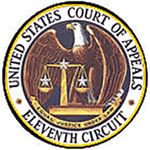
NEWS (3/31/21) — Florida: After finding that Florida death-row prisoner William Greg Thomas was entitled to present an untimely habeas corpus petition because his prior lawyer had abandoned him, the U.S. Court of Appeals for the Eleventh Circuit reviewed but denied Thomas’ challenge to his conviction and death sentence. The court held that Thomas was entitled to equitable tolling of the habeas corpus statute of limitations but ruled that his ineffective assistance claims were either procedurally barred or without merit.

NEWS (3/30/21) — California: A Los Angeles County Superior Court judge resentenced former death-row prisoner Jamelle Armstrong to life without possibility of parole after the California Supreme Court reversed his death sentence in February 2019 because the trial court had improperly excluded jurors from serving in the case if they were not equally willing “to impose death on an aider and abettor as on an actual killer.”
Armstrong was 19 years old when he participated in the 1998 rape and murder of a Long Beach woman committed by his older half-brother Warren Hardy and Kevin Pearson, both of whom were sentenced to death. He was tried separately and sentenced to death in 2004. Prosecutors declined to seek to resentence Armstrong to death, citing new Los Angeles County District Attorney George Gascón’s directive against pursuing the death penalty.

NEWS (3/29/21) — Missouri: The United States Supreme Court has issued an order directing the parties in Ernest Johnson v. Precythe to file briefs on whether Johnson may amend his challenge to the constitutionality of Missouri’s lethal-injection execution protocol by offering the firing squad as an alternative method of execution.
The federal district court had dismissed without prejudice Johnson’s claim that executing him by lethal injection would constitute cruel and unusual punishment because of a preexisting medical condition that could cause him to experience seizures during the execution. The U.S. Court of Appeals for the Eighth Circuit subsequently refused to allow Johnson to amend his claim after the U.S. Supreme Court ruled that his initial proposed alternative, nitrogen hypoxia, was not available. Johnson then asked the U.S. Supreme Court to review whether courts must accept at face value the reason the state offers for rejecting a death-row prisoner’s alternative method of execution, despite the prisoner’s plausible assertion that the reason is not legitimate or sufficient on the facts of the case. Alternatively, he asked the Court to summarily reverse the circuit’s refusal to permit him to amend his complaint to propose as an alternative a method of execution the state had previously employed.
The Supreme Court directed the parties to file briefs not to exceed five pages on the question “Given that the District Court dismissed without prejudice, would petitioner be barred from filing a new complaint that proposes the firing squad as the alternative method of execution?”


